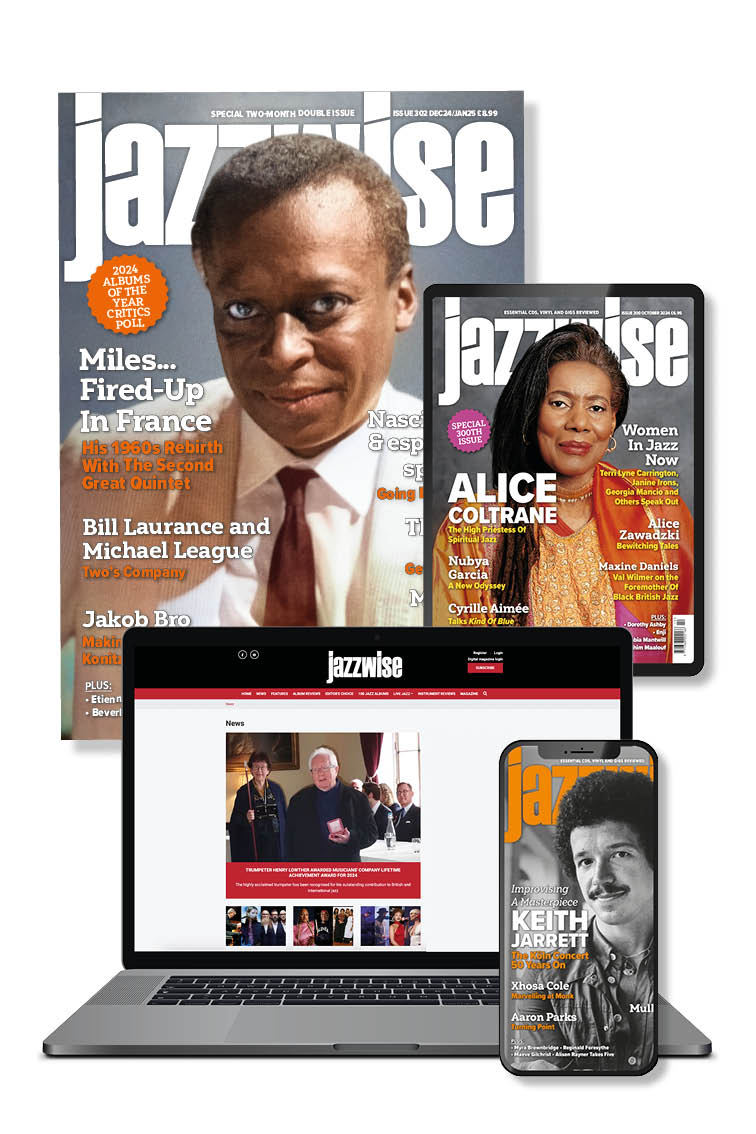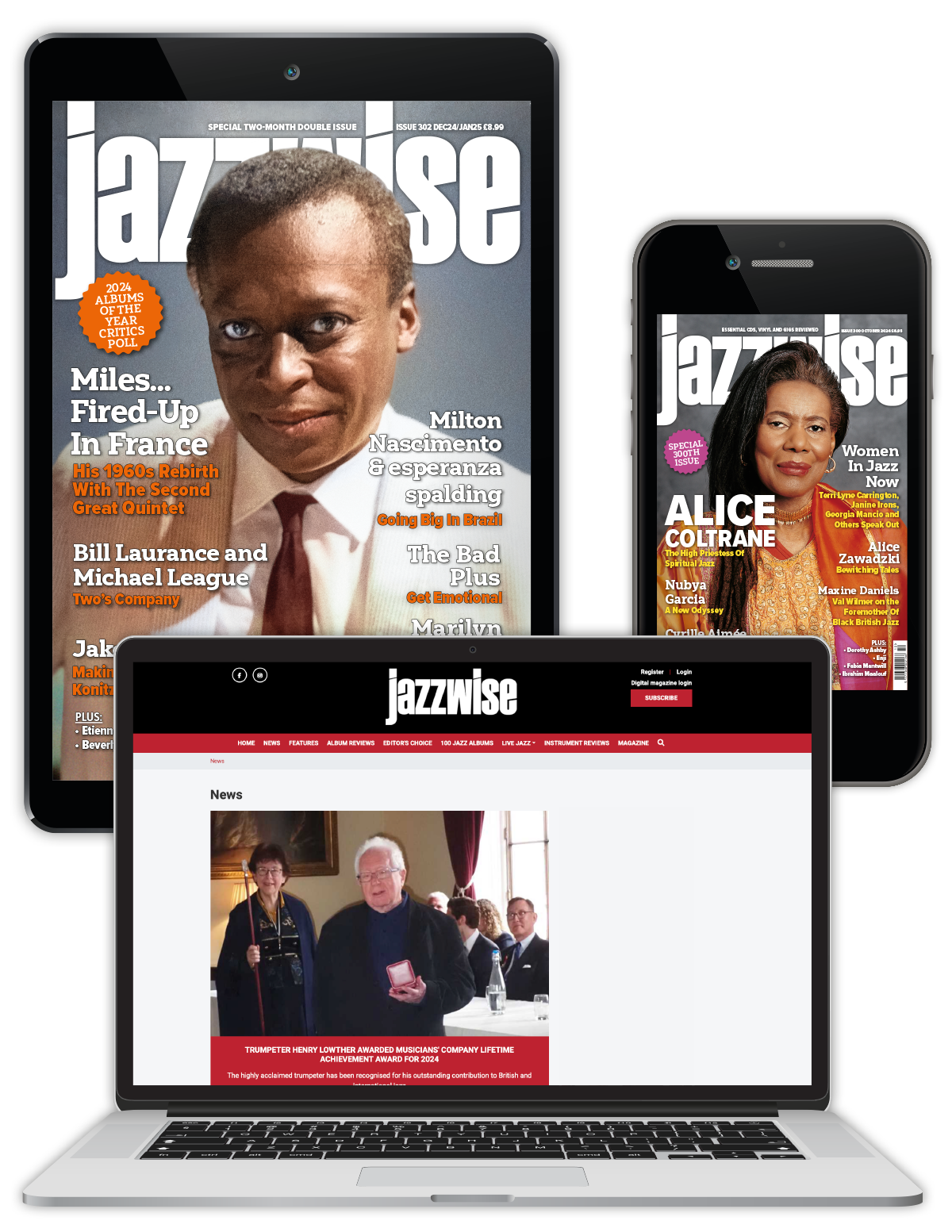Album Interview: Matthew Shipp: The Piano Equation
Editor's Choice
Author: Kevin Le Gendre
View record and artist detailsRecord and Artist Details
Musicians: |
Matthew Shipp (p) |
Label: |
TAO Forms |
Magazine Review Date: |
May/2020 |
Media Format: |
CD |
Catalogue Number: |
TA0 01 |
RecordDate: |
2019 |
Matthew Shipp’s impressively large discography has recordings in all kinds of configurations but solo piano is one context in which he really comes alive. The personal language he has been assiduously developing since the late 1980s can be heard clearly when the spotlight falls on him alone, as satisfying as it is when he collaborates with others.
Firstly, his touch is magnificent, with the clarity and muscularity of the right hand and mighty power of the left well to the fore. Here, over 11 relatively short pieces, he proves that he is as much about narrative, or rather how to string together multiple sprightly themes, some times in very quick succession, as he is the investigation of timbre and tonality in order to sidestep conventional harmonic constructs. Shipp’s 2002 album Songs celebrated his affinity for classic jazz anthems such as ‘Con Alma’, ‘Yesterdays’ and ‘On Green Dolphin Street’, and his originals are both outside and inside that ambit, intelligently questioning perceptions of what is mainstream and avant-garde by drawing on a large pool of African-American and European histories. There is a thorniness and sweetness in Shipp’s sound world that reflects a deeply creative mind, which compellingly grapples with several of the emotional and cerebral complexities also confronted by any number of modernist pioneers.
Jazzwise talks to Matthew Shipp.
Recently we’ve heard you duo a lot with saxophonist Ivo Perelman. Does solo piano offer a very different challenge without such a longstanding creative partner?
The duo project with Ivo and solo piano are two of the most important projects to me at this time – they are different – but both necessary for me to do my thing and be me at this time. The duo allows me to be an orchestrator – Ivo has just the right tone color and sense of weight to allow the best aspects of my playing to flower, to shape a landscape together. This partakes of both a modern jazz sensibility and what some might hear as classical timbre. The solo in a certain way is a distillation of all I do in a concentrated form – and yes, it’s a different challenge since I have to feed of myself.
Most of the pieces are relatively short but very incident-packed – lots of melodic ‘episodes.’ Do you like to think of a song as a continuous, concentrated flow of ideas?
The whole music is a flow of thoughts – that is how I think of the whole universe – it is all one chip of information that can transform in an infinite amount of ways in a flow of sorts. Information is malleable and can come together in many ways – look at the difference in people but with mostly the same basic genetic information coming together in different ways. I view the pieces as living organisms built out of a mystical alphabet. The flow is the mystery.
A lot of the themes ‘sing’ but still retain dissonance. Have you always been attracted to the borderline of tonality/atonality?
The borderline between tonality and atonality has always interested me. I noticed when I was young that the phrases I loved in Webern and Schönberg were very poetic – so except for looking for something that is traditionally considered tonal – it is a matter of thinking in terms of placement of notes and trying to find the poetics of the fact; and of course making it sing, which means it is a statement being made from the very inside of you and sings with your soul.
A great crash into the low register is one of your distinctive features. Is this just how you feel changes of narrative direction/dynamics?
The low register is part of my voice – metaphysically for me it is the abyss – in a composition it can be a reboot or a narrative changer – but it is the matrix of sorts, or the cloud.
Some pieces also have sharp rhythmic jolts or an abrupt shift into march time, right on the beat, after a more fluid passage. Again, does this reflect a basic need for contrasts?
Contrasts come hard and heavy – let’s see what can work together and shed light on the other part by its differing elements. Let’s precede in the piece by paradox – this is not postmodern – this is building an organism through music.
Why the titleThe Piano Equation?
I am looking for the perfect phrase at the piano – a phrase that would alchemise matter: if I ever find the perfect phrase I could play that one phrase and attain my ascension. I will keep looking for the perfect placement of notes.

Jazzwise Full Club
- Latest print and digital issues
- Digital archive since 1997
- Download tracks from bonus compilation albums throughout the year
- Reviews Database access
From £9.08 / month
Subscribe
Jazzwise Digital Club
- Latest digital issues
- Digital archive since 1997
- Download tracks from bonus compilation albums during the year
- Reviews Database access

